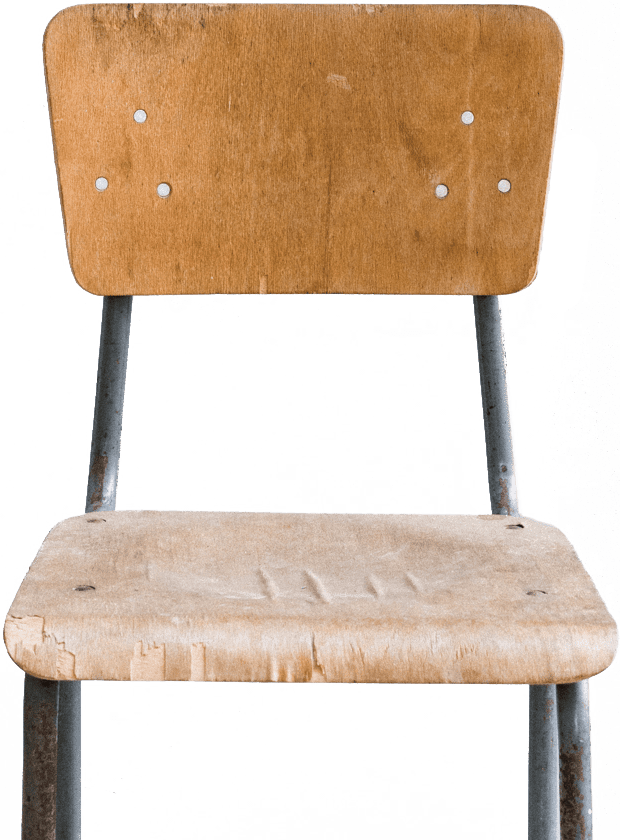
What are assets?
Are Assets Your Right?
What Are Assets?
Where Did My Assets Go?
Assets in America’s founding
Is there a legal basis for estate planning? Is estate planning ethical? Assets as a Right.
What Are Assets?
Most folks know that their house, their car, their boat, and their brokerage account are assets. But most don’t realize that their control of those assets is one of the most important fundamental Rights an American citizen has. And yet, many do not avail themselves of the right to plan for the legal control and use of their assets. Much less for asset protection from Mainecare liens. Learn more how to protect your money from medicaid , MaineCare and nursing home costs.
Making an estate plan is not just a good idea, it is a Right. The reason estate planning was made a Right in this country is because assets are more than just their value in money. The Right to acquire and control assets is the foundation of the stability and prosperity of the country. The founders of the United States called assets “property”. If you think calling estate planning one of our most important Rights is an exaggeration, just read what James Madison, fourth president of the United States said about assets.
Estate Planning and Assets
Even though many people know that protecting their assets with a good estate plan is their right, they don’t know where to start. A good way to start is to realize that you need an estate plan to properly protect your assets. Another good place to start is by learning about estate planning. You can attend a free estate planning seminar. Estate planning sounds complicated. And honestly, it is a bit complicated. I spend many hours each year in continuing training to learn and perfect estate planning techniques. But because I do that, you don’t have to in order to make an excellent personalized estate plan. But what if you’re not sure you need asset protection?
Crisis -or- Preplan?
The Right to Property is Personal and Social
So what does the President have to say about assets?
“The personal right to acquire property, which is a natural right, gives to property when acquired, a right to protection, as a social right.” James Madison wrote that. Another quote, that Madison certainly agreed with is “The power of perpetuating our property in our families is one of the most valuable…, and that which tends the most to the perpetuation of society itself.” Edmund Burke wrote that.
Having control over your assets is a good thing
Madison and Burke believed that people are motivated to be productive by their desire to provide for themselves and the people they care about. That productivity creates a stable and prosperous society.
“ The personal right to acquire property, …is a natural right”
They’re your assets, shouldn’t you be allowed to protect them?
Am I Allowed to Control My Assets?
The product of our decision to work and save – results in us having assets. That is why the U.S. Constitution protects your right to acquire, and determine what to do with your property. But are you using your rights? If you don’t have an estate plan, you may be taking your rights for granted.
Gifting strategies that work.
Estate planning is a right
Are You Protecting Your Rights?
What’s the difference between a right and a privilege?
That’s the difference between the inherent right of a person, and a right that is bestowed by a government. If the government is giving you something, it is a privilege. Privileges can be taken away. But if you have a right, the government cannot take it away. Our right to keep our stuff is not a privilege, but a right. Our government does not give us our rights. If it is working as it was intended, our government is aiding us in protecting our rights.
Are Property Rights Ethical?
The people who set up our government believed that the right to acquire property would be an engine that produced a cohesive, wealthy society. I believe they were correct. But you don’t need to take my word for it. Simply look around the world. There are many countries far older than the U.S., but none as successful. More telling than the age of a country, however, is the fact that the least successful, the most unstable, the poorest countries, are countries where the citizens have the least rights in their assets.
The poorest and most volatile countries have governments that dictate at gunpoint who has assets, and who does not. To paraphrase Burke in the quote above, the power of perpetuating property in our families perpetuates society itself. The notion that people should be able to control what they work for, that they should be able to decide what happens to their assets, is as American as any article of the Constitution.
But, despite that, not everyone takes advantage of that right. Many lose their assets, not because of an arbitrary government, but because they failed to make an estate plan.
Is Your House An Asset?
What Are Assets Used For?
How does estate planning protect assets? Planning is about recognizing how assets are used or useful, over the lifetime of your family. It is about deciding in advance, who should control your assets, and how they should be used in any probable future situation.
Who get’s to decide how your assets are spent?

Will You Always Control Your Assets?
Most estate plans are designed to protect your assets. You want to use what you have to provide for yourself, and your spouse, and your family. The quotes above tell us that having control of your assets is a right, and that it is one of the most valuable rights.
Control of assets is a right, and a valuable right
Once assets are put into the context of a person’s life, it will be easier to see why the right to protect your assets is so valuable. And by valuable, I don’t mean just to the individual, but estate planning provides a value to the entire society.
What Are Your Primary Assets?
The primary assets many of my clients are concerned about are their houses and their savings. Quite simply, estate planners are concerned about their assets because they are concerned about the well-being of their family. But what about control of your assets? How is that relevant to estate planning. You must consider that there may come a time in your life when you still need your savings or your house, but you can no longer make decisions for yourself. So, in estate planning, you are not merely planning for your family’s well-being but your own. In the definition of “family”, you must include yourself. Estate planning is about planning for how your family will benefit from your assets. But even if you have no children, you still need an estate plan. Because the first member of any family is you. But not just the present you, but a potential future vulnerable you. Estate planning is an even higher priority (or it should be) for single people, or a couple with no children.
Value of Assets & Stages of Life
But wellbeing is more than just the dollar value of your house. At Penbay Estate Planning Law Center, we try to sum up what we do with the phrase “plan, protect, peace of mind”. Peace of mind, or security represents a greater value than the pure dollar and cents value an asset has on paper. But sometimes more valuable than the equity in the asset of your house is the peace of mind the house gives you. The house provides shelter and usually also provides memories of past stability and shelter. So, asset protection provides peace of mind in knowing the source of that stability has been protected, and that it can be used to provide that peace of mind into the future. Peace of mind is knowing how your assets will be used. For instance, peace of mind can mean not worrying about having a place to live for a retired person. Or it can mean the freedom an inheritence can give to a working person who used the inheritence to fund their living while they learned a better career. Or it can mean that knowing when you are gone, there will be a little more money to fight injustice, or support the humane treatment of animals, or provide playgrounds for children, than there was before you.
While you enjoy the use of your assets, your plan provides peace of mind in knowing that you will continue to enjoy them even if you can no longer protect yourself. And that, after you’re gone the people you care about will enjoy them. That is how an estate plan provides peace of mind.
So, assets are a fundamental issue in estate planning. But not just as a value, but as we’ve seen, for the wellbeing or “peace of mind” they can provide. But what specifically are we planning for? We are planning for the timing, liquidity and control of our assets.
How is liquidity relevant to estate planning assets? The liquidity of an asset describes how easily it can be sold. For instance, cash is very liquid. But other assets are not very liquid. They may take time to sell. They may be subject to fluctuations in value due to market conditions. This becomes important if we suddenly need to convert an asset to cash. Perhaps we no longer use our vacation cottage, so we wish to sell it. If we have time, we can wait for a good offer. But if a sudden emergency arises, we must engage in a “fire sale” and take whatever we get. But what if when the need arises, we have become that future self I was talking about – the person who is no longer capable of understanding how to sell a vacation cottage? These questions arise: Will it be sold in time to help me? Will I get the best price? How will the proceeds of sale be protected? If I were in charge I’d get a mortgage and wait. But I’m not in charge anymore. While that circumstance may never arise, the mere fact that it could is the opposite of peace of mind. Answering these questions in a legally enforceable document (usually a trust) is how you make an estate plan.
Trusts are not just a planning tool for the ultra-wealthy. Take the free 3 minute quick quiz to find out if your plan would benefit from a trust.
Your IRA As An Asset
Where Did My Assets Go?
Play the game to learn the value of estate planning in preserving your assets
Assets
Ask yourself, “Who controls my assets? And then ask yourself “Who benefits from my assets? every time you say “I’m not sure” or “I don’t know” your assets go down in value
Here is how you play the game “Where Did My Assets Go?”
Every time you can answer both questions by pointing to a specific instruction in a legally enforceable document, you get a point. Every time you cannot or say I’m not sure, you lose a point. At the end, estimate the value of your estate. Positive points represent fractions of your estate. For example, if you have 1 point, you get to preserve 10% of your estate. If you have ten points, you’ve preserved 100% of your estate. Negative points work the other way. So, if you have negative 1, you’ve preserved 90% of your estate. Negative ten points, means you have lost 100% of your estate. Okay, ready, now let’s play.
First select a time in the life of your family assets:
You are alive and have all of your marbles. Answer to question one – who’s in charge: you are. Answer to question two, who gets to benefit – you do, and anyone you say. You can save your assets, spend them or give them away. That was easy. Now, move to the next time in the life of your family assets.
Time in the life of your family assets:
You are alive and well, but you have lost your marbles. Now, answer question one – who is in charge of your assets. Do you know legally who would control your assets if you lost your marbles? Don’t worry if you have no idea. Subtract a point. It is not unusual. Now answer question two – who gets to benefit from your assets. Not sure? Subtract a point. From a legal standpoint, if you’ve lost your marbles, you are not in control. The law allows you to make a power of attorney. A power of attorney is a legal document. You appoint an agent to act on your behalf. That agent can make legal and financial decisions about your assets if you’ve lost your marbles. But, you can only make a power of attorney if you still have your marbles. But what if you didn’t make a power of attorney? Now who is in control? The government allows someone to ask the court to appoint them to be your guardian and or conservator.
If you do have a power of attorney, then concentrate on answering question two: who benefits from your assets? Remember, to avoid losing a point here, there has to be a specific instruction, saying who benefits from your assets, and how. Many people when answering question number two assume that their agent in the power of attorney will make sure that they benefit from their assets. But you should not assume that. Why? Because a power of attorney does not give your agent instructions on how to use your assets. Agents under a power of attorney, and conservators appointed by the court have ethical guidelines to follow. They are bound by the law. But they do not have any idea what you would do if you were still in charge. For instance, can they use your assets to support another person (your spouse, your kids)? Can they transfer the assets to protect them from a Mainecare lien, because you’re expected to be in a nursing home for a long time? How do you protect assets from nursing home costs? How do you protect assets from Mainecare liens? This lapse of control, and lack of a plan could cause a significant loss of assets.
If you wish to continue the imagination game of Where Did My Assets Go?, simply continue down the line chronologically in the life of your family assets answering the two questions at each stage. We started with the time “you are alive and have your marbles.” Then we went to “you are alive and have lost your marbles.” Then move to, your spouse is alive and has her or his marbles? Answer the two questions, and then move to the next time. You and your spouse are both alive, but both have lost your marbles. Who is in charge? Who benefits? Then move to the stage where you have died, and your spouse is alive. This time, your spouse still has her or his marbles. Now who is in charge, who gets to benefit? Is it your spouse? Is it her new wife or husband? Is it the stepchildren, the kids of her or his new spouse? Or perhaps the boyfriend or girlfriend your spouse met at a social gathering who is twenty years younger. Is your spouse vulnerable? Subject to elder abuse? Treasure hunters? Now your spouse has lost her or his marbles. Now your spouse goes into a nursing home. Now who is in charge? Who benefits?
Continue to the next stage: Now you and your spouse are both gone. Now who oversees your assets? Who benefits from what you spent a lifetime building and saving? Is it you kids? Is it that daughter-in-law or son-in-law that you never trusted when you were alive? Is it a creditor of your child’s business? A treasure-hunter? Now your kid gets a divorce. Now who is controls your assets? Who benefits?
%
Percent of Folks Over 65 Who Will Require Some Nursing Home Care
Is it Possible to Plan for your Assets?
Yes, it is possible to make a plan for your assets.
It is possible to plan, protect, and get peace of mind for each stage in the life of your family assets. Try playing the game. But remember real life is not a game. Sometimes we only get one chance to do things the right way.
Estate planning gives meaning to the rights we have to protect and plan for the people and causes we care about. It is no exaggeration to say these are rights our country was founded to protect. You shouldn’t take these important rights for granted. Because of them you can decide. But only if you make a plan. Shouldn’t you provide your family and your descendants and Care-descendants a plan for your assets?
Learn how to protect & maintain control.
Penbay Estate Planning Law Center
Camden, ME 04843
Feel Free to Call Us
207-236-4888



